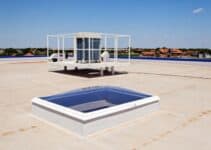You might have heard someone complain about experiencing signal interference in their home, or you are experiencing a glitch in your electronics after installing your solar panels. In that case, you might wonder if your solar panels are responsible for your WiFi or TV reception interference.
Generally, solar panels installed on your roof can interfere with your reception. However, this isn’t caused by the solar panels emitting radiation but because of direct physical interference or electromagnetic interference.
Suppose you would love to get more insight on how solar panels interfere with your home’s reception and how to remedy the situation, dive in.
Can Solar Panels Interfere With WiFi, TV, Or Cell Phone Reception?
We stated earlier that solar panels installed on the roof could interfere with WiFi, TV, and cell reception. But, one might wonder, how can solar panels interfere with it? Though infrequent, interference can happen due to direct physical or electromagnetic interference.
The cause of direct physical interference is quite straightforward. It is caused by an obstruction between you and the cell tower. Hence, solar panels can be a physical obstruction if they are a barrier between your device and WiFi reception.
Solar panels are not the only reason for this. Thus, one might face direct physical interference with the reception in a home without solar panels. However, the primary obstacle for most homes is having separate walls between rooms.
It inhibits the signal from moving from one place to another. Other obstacles can also be responsible for physical interference, such as mirrors, concrete, stainless steel, etc. Electromagnetic interference (EMI) is another type of interference by the solar panel system.
Even though the solar panels themselves do not emit electromagnetic radiation, the inverter does. As a result, the conversion of currents to the suitable form for your appliances may produce broadband noises that can interfere with the signal in your home. How does this happen?
The inverter is responsible for converting the DC absorbed by the solar panels to AC, which our home appliances run on. So, EMI is generated by the inverter and the wires carrying the AC out to power your appliances.
Afterward, it radiates outwards and interferes with our reception. Fortunately, this has been taken into account, and the inverter and wires are usually shielded during installation. Thus, making this interference even rare.
How Does a Typical Solar Panel System Work?
Chances are, you are well-versed in how solar panels work. They absorb sunlight and convert it into energy. That’s right, but that’s not all about how the system works. So let’s take a step-by-step look at how typical solar panels work.
1. PV Cells Absorb The Sun Radiation
To conserve the sun’s energy, the photovoltaic cells in the solar panels must first absorb the sun’s emission. Then, when photons emitted by the sunlight hit the panels, they separate electrons from atoms. This occurrence is known as the photovoltaic effect and is responsible for generating electricity.
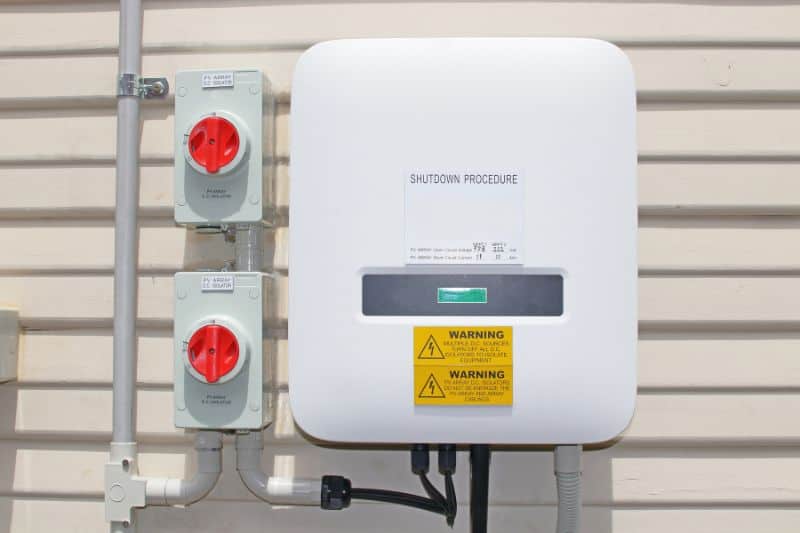
2. Solar Inverters Convert DC to AC
The electric current generated by solar panels is DC electricity. However, the current used for your household appliances is AC. Hence, you need the help of a solar inverter to convert the generated current to a suitable one for your home devices.
Solar inverters are one of the most important pieces of equipment in your solar panel system, so ensure that they are equipped with transformers to regulate the voltage of the currents.
3. Power Your Home
The solar panels and inverters have generated your solar power; it’s time to power your home. Solar energy can power any appliance in your home as long as the solar panel and inverter provide enough energy.
The solar inverters transport the transformed energy to your electric box, which transfers electricity to all the outlets in your home. Hence, you can plug in your devices and appliances.
4. Extra Electricity is Exported To The Electric Grid
Suppose you have a grid-tied solar system. The system can transport excess electricity generated by your solar panel to the electric grid. It can even make you some money through the net metering policy.
Net metering policy, in simple terms, means that you get credits from the power grid when you transport electricity to it. This can significantly reduce your electricity cost.
What Can Affect WiFi Signals?
Wireless networks are one of the best things that have happened to technology. Routers transmit radio waves wirelessly in a way that communicates with wireless devices. These waves are electromagnetic spectrum; thus, anything that blocks or causes EMI can affect the signals.
Let’s take a quick look at some common WiFi signal barriers.
1. Physical Barriers
Several physical buildings or materials can affect your WiFi signal even without you knowing. Some barriers can easily be removed and moved to another spot. Still, in some cases, it might be difficult to change the position of these physical barriers.
Some materials such as metal, concrete, walls, metal doors, and pieces of furniture are harder to penetrate. Therefore, they can have a significant impact on WiFi signals.
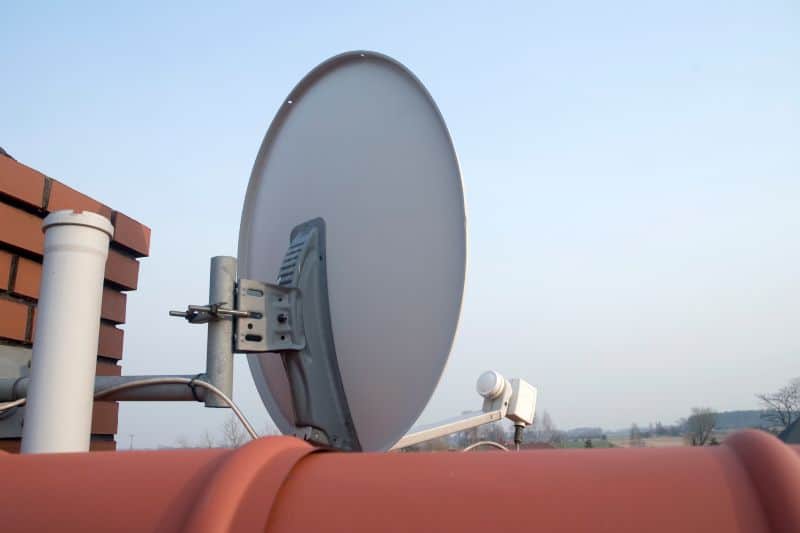
2. Electronic Gadgets
Electronic gadgets and devices such as alarm systems, satellite dishes, cordless phones, and many more can affect WiFi signals.
How?
Electronic devices generate electromagnetic fields and thus can affect WiFi when its signal passes through the EMF. A common rule is that the stronger the EMF, the greater the WiFi interference and disruption.
3. Distance
You might have noticed that your WiFi gets slower the further away from your router. This is because of the distance between your device and the router. It is vital to note that WiFi uses electromagnetic waves sent by routers to form a connection.
However, the further away your device is from your router, the weaker the electromagnetic wave.
What Will Be Affected When You Go Solar?
The sun is a powerful energy source, even though humanity is yet to harness a fraction of the energy from this source. Still, the energy source has proved to be highly beneficial and safer for the earth and the environment.
However, several homeowners yet to decide on going for solar panels still wonder what will be affected when they go solar. Fortunately, the signal of your WiFi, TV, or phone is the only thing that can be affected in your reception due to solar system installation.
The reason is primarily because of the electromagnetic emission that sometimes causes interference with the signals. Despite this being rare, it is a deal-breaker for some property owners.
But, of course, interference of TV, phone, and WiFi signals isn’t the only pitfall to embracing solar energy. We’ve got several other disadvantages of going solar that can affect homeowners’ decisions.
Some of them are:
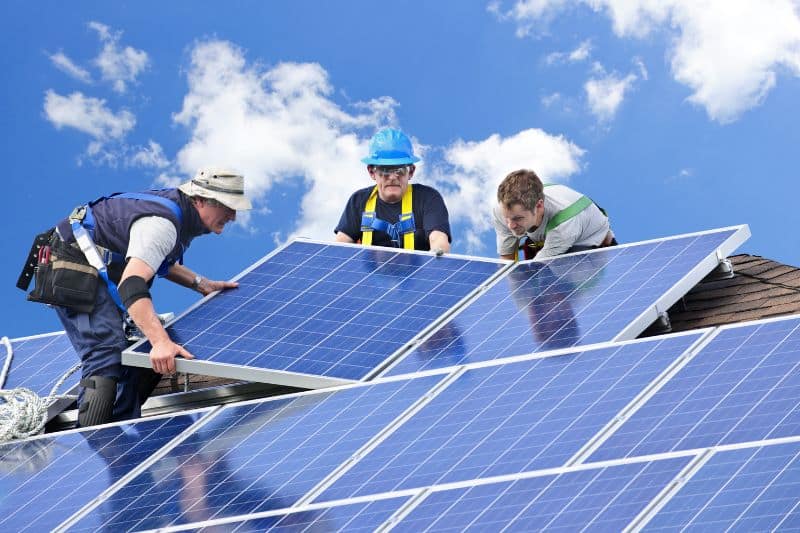
1. Expensive Cost of Initial Installation
The initial cost of purchasing and installing solar panels is fairly high. It can cost anywhere from $15,000 to as high as $50,000. The high cost is due to purchasing solar panels, inverters, and other components, and paying for wiring, permit installation, etc.
Even though a decent and average-sized system can cost around $20,000, it is important to note that they may not have a battery storage system. Hence, if you plan to purchase a solar system with battery storage, you should be prepared to sacrifice some more money.
2. Overlooked Environmental Pollution
When it comes to solar panel systems, there is overlooked environmental pollution. Perhaps, this is because its eco-friendly energy overshines the environmental pollution and impact it causes during its manufacturing.
Several compounds are found in solar panels, but among them are lead and cadmium, which are two highly toxic materials. Exposure to lead causes biodiversity loss by affecting reproductive health, while cadmium highly targets bones and kidneys.
Yet, in other countries where solar panels are manufactured, such as China, Taiwan, and others, these hazardous materials aren’t disposed of so carefully. Other environmental impacts are associated with solar panel systems, including habitat loss, land pollution, and water pollution.
How To Prevent Solar Panel Interference of Digital Signals?
To prevent solar panel interference of digital signals banks on two vital things. Let’s take a look.
1. Purchase a Decent Solar Panel System
Conventionally, EMI is generated by the inverter during the conversion of current and the AC wires. Hence, regardless of your installer, your solar system will still undergo interference.
However, buying a decent solar system means high-quality components. For instance, a decent solar panel system manufacturer will adequately shield the inverter to reduce interference.
2. Ensure The Installation is Done By a Professional
Suppose you have carefully purchased the best high-quality components for your solar system. In that case, the next step is to find a reliable professional to install them in a strategic design that wouldn’t cause any obstruction to your signals.
You should ensure that your installer or installation company runs different tests to ensure that the solar panel system does not obstruct the reception.
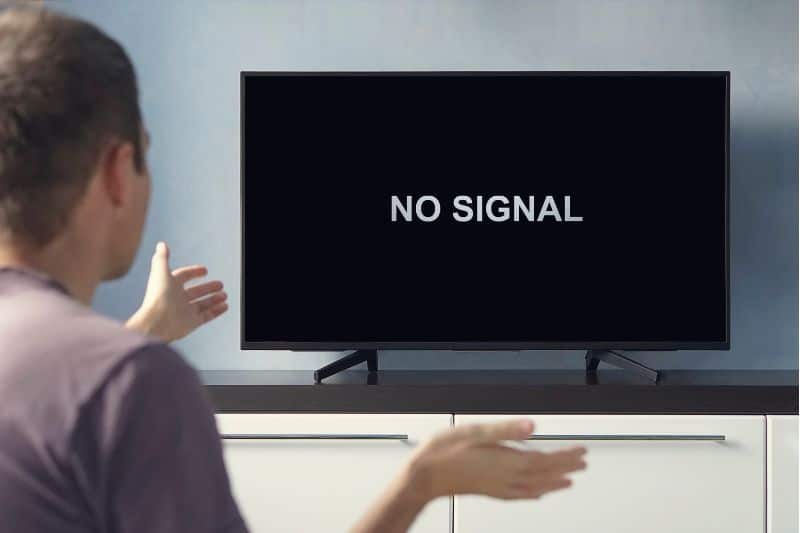
How To Improve TV, WiFi, and Cell Phone Reception After Interference?
There can be interference because physical objects block your device signal or electromagnetic radiation. However, this can be pretty annoying, so here are some tips on improving TV, WiFi, and cell phone reception after interference.
- Remove any physical obstruction that might be blocking your signal.
- Replace your antenna.
- Change mobile provider.
- Change the location of your router.
- Ensure that your AC power cable is adequately shielded.
- Unplug unused devices from your router.
- Change the router’s channel.
How To Reduce/Cancel ElectroMagnetic (EM) Radiation Interference From Solar Panels System?
There are only a few techniques to reduce electromagnetic radiation interference from solar panel systems. Let’s take a look!
1. Shielding
One of the most common ways to reduce electromagnetic radiation is shielding. It is a simple method of decreasing and regulating radio waves and electromagnetic fields. In addition, shielding is utilized to reduce noise.
Although shielding is not always possible, most metals will offer some shield level. But, how effective a shield is depends on the reflection and absorption of the material.
2. Cancellation
Cancellation might sound like a big term, but it is simple and cheap to do in reality. It deals with wire twists and can easily cancel out electromagnetic radiation (EMR) interference.
Even though this method isn’t always reliable or effective, it’s worth a trial. When noise passes through wire twists, it tends to cancel at each twist. Thus, cancellation through a twisted wire is a temporary solution and is usually the first to try out by most.
3. Filtering
Filtering is an excellent method to remove interference. You can filter the solar panel system with capacitors to remove unwanted frequencies despite being expensive. The technique is very effective but quite costly and difficult to set up.
Conclusion
Solar panels can interfere with your home’s reception if they are placed in the path of your signals or act as an obstruction. Fortunately, thanks to growth and innovation in technology, you can be assured knowing that there are a few ways to reduce electromagnetic radiation interference.
Plus, with the purchase of high-quality solar panels and property installation, you shouldn’t have to worry about interference in your home.

